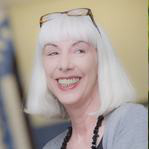 Angela McRobbie, Professor of Communications at Goldsmiths, University of London describes a recent event exploring methods and themes in creative industries research.
Angela McRobbie, Professor of Communications at Goldsmiths, University of London describes a recent event exploring methods and themes in creative industries research.
The Goldsmiths/CREATe event last week (January 13th) titled ‘Concepts and Methods in a Cross-Sectoral Frame’, had the aim of encouraging invited speakers to discuss the methodologies they were working with, with a view to exchanging perspectives on the issues arising, especially those that were especially challenging. A key dynamic for the afternoon was to have one panel present topics relating to quantitative methods, followed by a panel which reflected specifically on themes emerging from CREATe work drawing on qualitative approaches. We also wanted to bring a number of the CREATe researchers together in order to initiate a debate about future directions for the creative industries.
The event was attended by approximately 50 people, including staff and post-graduates from Goldsmiths, also PhD students from London, and from different parts of the country including Newcastle, Birmingham and elsewhere. We were pleased that colleagues from City University London and King’s College London also attended.
Of the range of excellent papers Cath Sleeman’s work as a NESTA Fellow which involves ‘visualising data’, was a key focus for interest for its ability to translate the presentation of tables and graphs into livelier colour coded visual designs and patterns which in turn means faster interpretation and analysis by larger numbers of people. This was followed by Nicola Searle (Goldsmiths /CREATe) who introduced the topic of IP and Copyright from an economics perspective. In the qualitative methods panel Carolina Bandinelli (Goldsmiths CREATe) discussed some of the ethical dilemmas which have arisen in the course of her study of social and cultural entrepreneurs, including her own decision to take on the role as part-time professional herself in this field. Finally Don Slater (LSE) who delivered the last keynote of the afternoon, rehearsed the stages of his own current team research ‘Configuring Light’ which explores the decision-making processes on the part of lighting design professionals in conjunction with local authorities in developing lighting systems in a range of urban neighbourhoods such as Peabody estates in London. Slater along with his colleagues have developed a form of collaborative research which has a specifically applied sociological dimension. It’s not a matter of doing research on design professionals more a matter of working with these lighting experts. This gave rise to lively debate about the relation between practitioners and academic researchers, while also opening up possibilities for re-vitalising the rather hackneyed idea of knowledge transfer. In summary the afternoon as a whole brought lively quantitative methodology debate to the attention of many who are well-versed in qualitative methods, while at the same time bringing back into vision the value and relevance of previous, now classical, works of sociology such as the writing of Howard Becker and Pierre Bourdieu.
